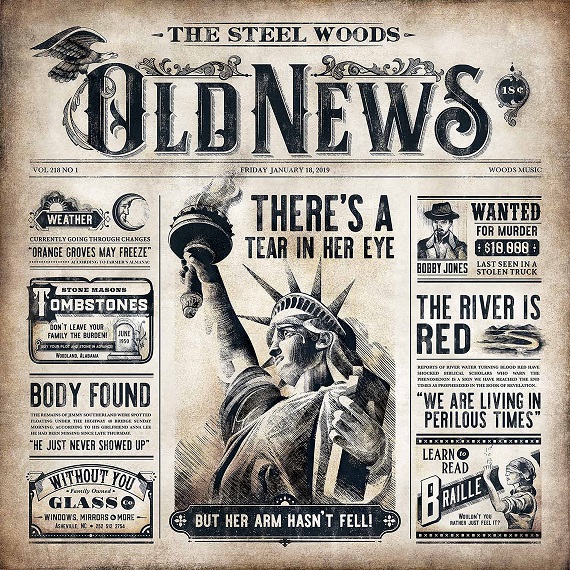
There’s a Southern accent
Where I come from.
The young un’s call it country,
And the Yankees call it dumb.
Tom Petty, “Southern Accents” (Covered by The Steel Woods)
Southern rock and “outlaw country” are experiencing a renaissance of late. Undoubtedly influenced by the rash of bubble gum pop country from Nashville, this darker and more authentic working class music speaks to Americans with a penchant for seeing the glass half-empty. Or perhaps it’s a throwback to Hank Williams Jr.’s astute summary of American life in his “American Way:”
If you fly in from Birmingham, you’ll get the last gate.
If you blew in from Boston, no you sure won’t have to wait.
And I’m learning, a little more every day,
About the power of the dollar, and the people with white collars, and the good old American way.I’ve noticed I don’t get much help, when they see my blue jeans.
Some slick with a suit walks up, “Oh, can I help you please?”
Yes I’m learning, as I gain a little age,
About the power of the dollar, and the people with white collars, and the good old American way.
Either way, this resurgence of gritty Americanism is being driven by Southerners from Appalachia to Texas. This isn’t your Midwestern housewife’s country music or pre-pacakaged your “bro” country love serenade. There’s nothing wrong with some “Good Vibes,” but Americans in “fly over country” have become disenchanted with Hamiltonian America and the establishment political and economic class and this music reflects that. It’s the same type of skepticism that led to Jimmy Carter’s victory in 1976 and the “Crisis of Confidence” speech in July 1979. Donald Trump capitalized on this American angst in 2016. People know things don’t seem right, but they can’t identify the source. Music brings these feelings to the fore.
And Southerners are the most sensitive to the “American Way.” Defeat and exploitation have a way of rubbing raw over a century of scabs. This isn’t “Victimhood,” but rather a full expression of poverty and ostracism from American society. Yankees believe Southerners are a problem that can only be eradicated with a type of cultural and political exorcism directed by the high-priests of St. Abraham. This has led to a culture of defiance and affirmation in Southern music.
The Steel Woods exemplify this trend. While they call Nashville home, their lead singer and co-founder was born and reared in Randolph County, Alabama and their sound is distinctively Southern, a composite of Lynyrd Skynyrd, the Marshall Tucker Band, Blackfoot, Waylon Jennings, and Jamey Johnson. Some critics identify a hint of American metal, but that is because the band is unique. They sound like Steel Woods.
Much of the bands lyrical content focuses on the fringe of American society, the outlaws, renegades, and blue collar Americans who form the backbone of the American, more accurately Southern, experience. Southerners have long been rebels to the Northern mind because they don’t mesh with mainstream American group think.
In the “Rock That Says My Name,” the band mixes a Christian sense of salvation with Southern stoicism and duty in an epic tribute to tradition.
“Straw in the Wind” is a fantastic western epic in the tradition of Marshall Tucker’s “Fire on the Mountain” but with a sense of righteous retribution and defiance that can only be kindled by Southern culture.
In covering Merle Haggard’s “Are the Good Times Really Over,” the band pines for the days when a “buck was still silver” and the days “before Elvis, before Vietnam war came along, Before the Beatles and Yesterday, When a man could still work and still would….” And when “coke was still cola, And a joint was a bad place to be…back before everybody lied to us all on TV, Before microwave ovens when a girl could still cook, and still would.” Such masculine Jeffersonian rhetoric does not fit with modern American consumer culture.
Other tunes like “Axe” and “Compared to a Soul” combine Christian morality with Southern realism and man’s fallen nature into a potent mix of O’Connor or Faulkner inspired prose with evangelical vision.
If this trend toward more authentic Southern music continues, we might just witness a resurgence of Southern America not unlike that of the 1970s. But will that translate into a respect for the entire Southern tradition or only those things Yankees find palatable like music and food? Only time will tell, but bands like The Steel Woods provide hope that the Southern tradition can stay alive so long as we sing the songs. It also means that decades of politically correct education having completely destroyed real America. That alone is reason enough to hope.






